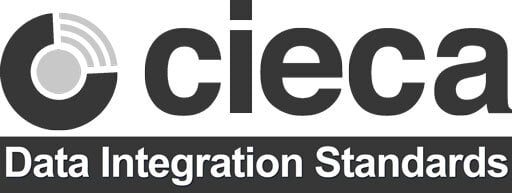asTech Leverages CIECA BMS Standards to
Help Repair Shops with Productivity & Efficiency
Just over a decade ago, asTech®, a Repairify company, was founded to provide automotive diagnostic and vehicle electronic services to professional repair organizations. Based in Plano, Texas, the company employs about 600 people and has a European office in Peterlee, United Kingdom, and a Repairify Canada office in Mount Pearl, Newfoundland, Canada.
Through its ASE-certified technicians, asTech conducts remote and in-shop diagnostic services as well as onsite mobile repairs and recalibration services.
We recently talked to Tony Rimas, president of asTech, about the company’s use of CIECA Standards.
Q: How does asTech utilize CIECA standards?
A: asTech began utilizing CCC’s Secure Share Network in 2018. The cloud-based application program interface (API) allows collision repairers to control the data shared with third-party app developers via a secure channel using CIECA Business Message Suite (BMS) Standards.
Q: What are some of the benefits using BMS Standards?
A: By leveraging CIECA BMS standards, collision repairers can quickly share information regarding the vehicle and the damages of that vehicle, enabling asTech to provide scanning, diagnostic and calibration services in an efficient and streamlined manner. Once our services are complete, our technology provides the shop with a comprehensive report that outlines the DTCs found on the vehicle, the meaning or description of the DTC, along with the OE procedures required to address them. Additionally, we can offer the shops information about calibrations, system initializations, and relearns that correspond to the vehicle damages providing the shop with key details necessary to properly restore the vehicle to pre-accident condition and saving them time in the repair process cycle.
What’s optimal about leveraging BMS standards is that it allows us to control the data that is sent. We receive information about the year, make, model and VIN of the vehicle—the things that are important but do not include personal information. Therefore, we can be confident that we aren’t sharing personal information that should not be shared.
We’re also able to provide a lot more information to our customer base about what is going on with a particular vehicle. Some choose to share that data with us, while others do not. BMS allows them to make that choice.
Through the usage of BMS, repairers can easily access our solutions and we can support them in properly diagnosing vehicle damage and efficiently documenting repairs. Overall, this helps with productivity.
Q: Why are CIECA standards important to the collision industry?
A: CIECA’s original standard, EMS (Estimate Management Standards), is the equivalent of Microsoft DOS, old and full of issues that many in the industry are concerned about. As a CIECA member since 2015, we have found that companies can better monitor and control the data that is shared using BMS. JSON is the next step/evolution of data security for the collision industry.
Q: What is the advantage of having industry standards?
A: Leveraging CIECA standards enables the collision industry to control the distribution of information and better secure customer data. In addition, BMS enables the collision industry to only share necessary information with third parties.
asTech is actively involved and participates in many associations, including CIC, CREF, CIECA, NABC, SCRS, etc., to help support the collision industry.
If you would like to share information about your BMS implementation in a CIECA spotlight article, please email stacey@cieca.com.
